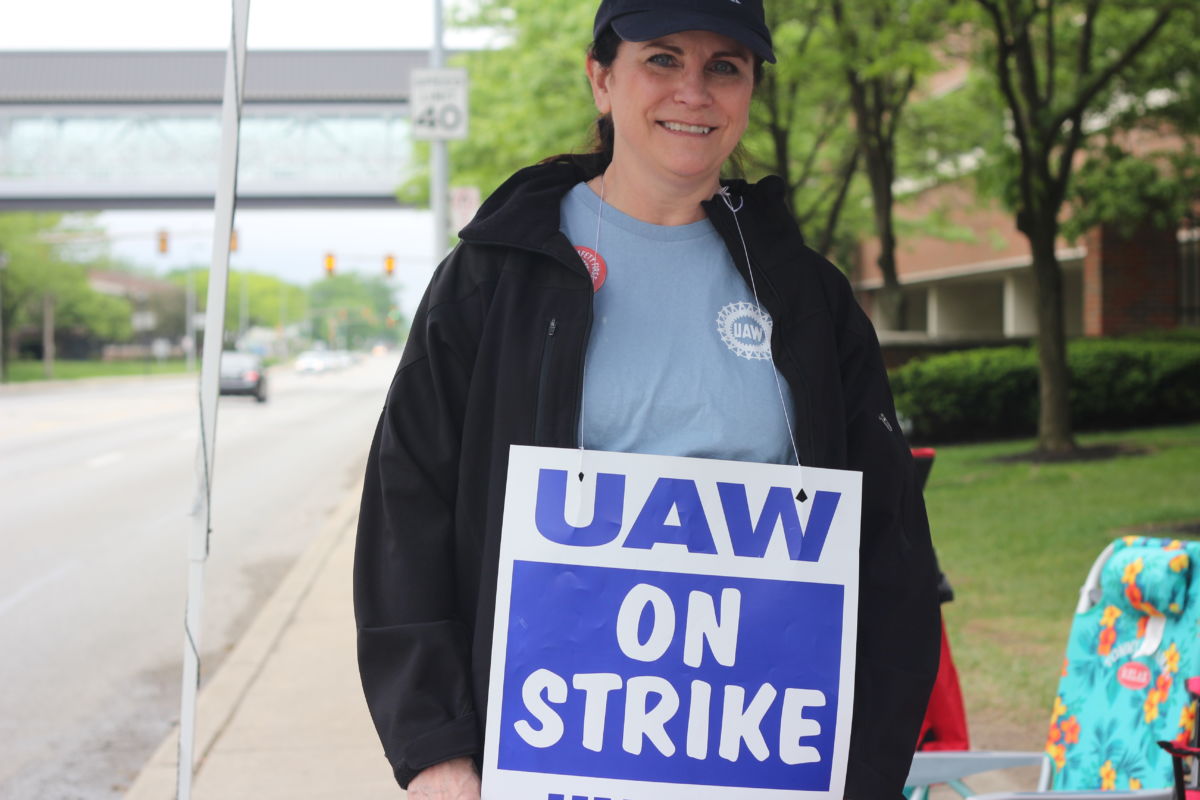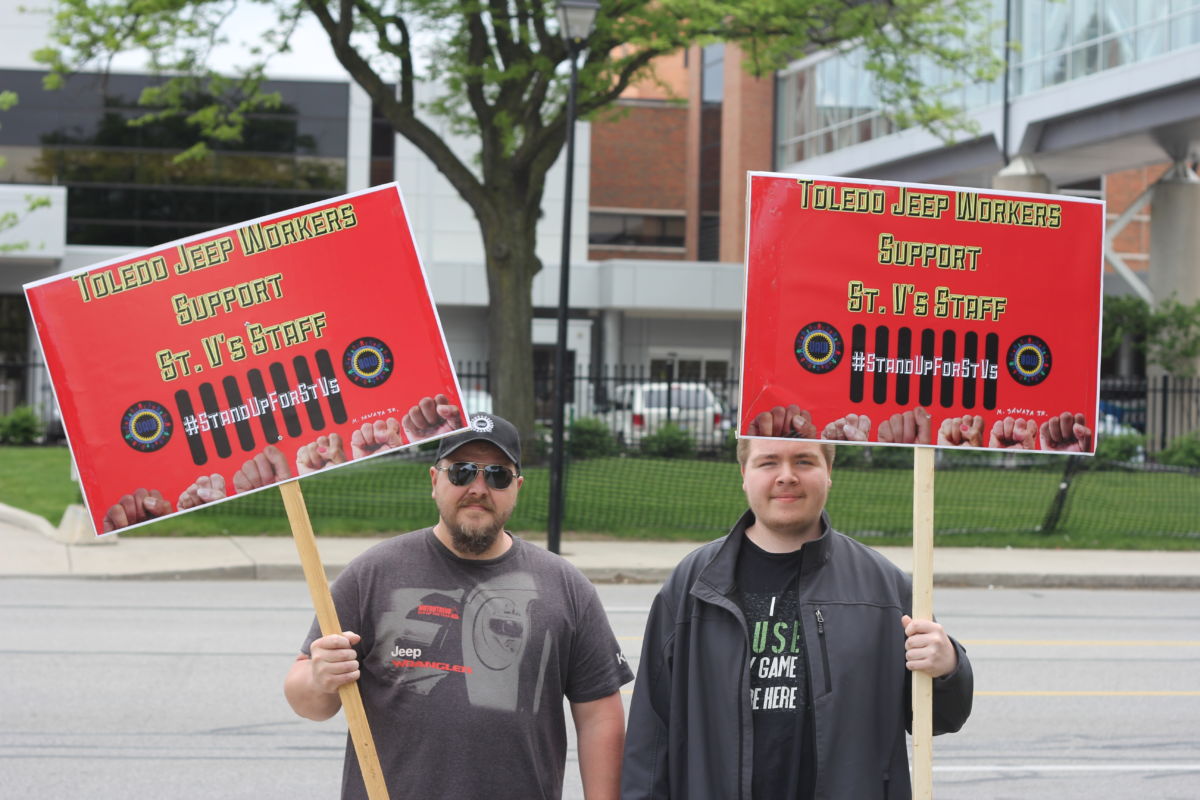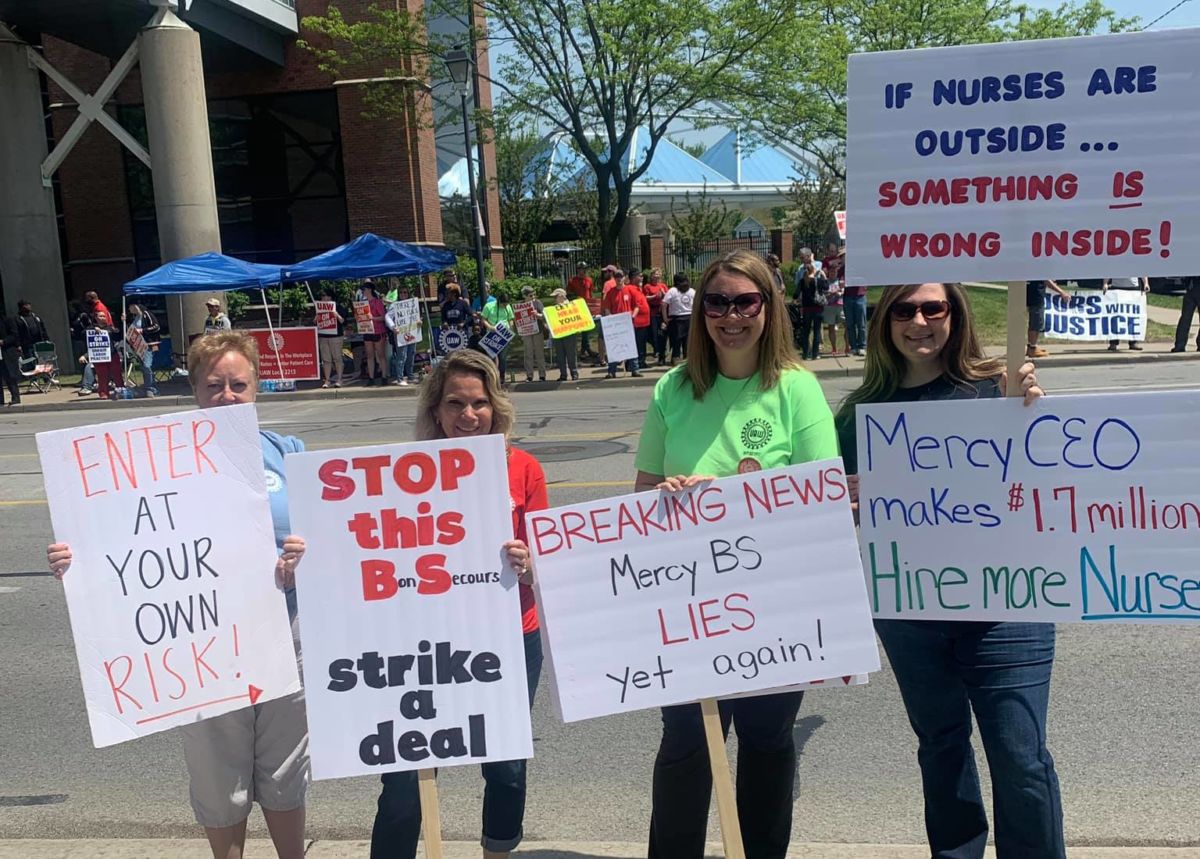Support justice-driven, accurate and transparent news — make a quick donation to Truthout today!
Hospital workers at Mercy Health St. Vincent Medical Center in Toledo, Ohio, are now in the midst of their fourth week on strike. The registered nurses, tech staff and support staff, all unionized through United Automobile Workers (UAW), walked out on May 6, in protest of exploitative working conditions that put patient safety at risk, and degrading employee benefits.
It was just announced that negotiations took place over the holiday weekend, and each bargaining unit will be reviewing the new proposals.
Some of the most pressing issues still on the bargaining table revolve around staffing and on-call hours. “We just want the basic necessities to do our job. We don’t want the sun and the moon,” Beth DenBesten, a registered nurse and strike captain for UAW Local 2213, told Truthout. “We just want to be able to take care of our patients without having to work a shift, come in on-call and then have to work a shift the next day as well.”

The union offered a timeline for the on-call issue to give the hospital time to scale it back. The hospital said it would take 18 months to do it.
“In an effort to get an agreement, we said, ‘alright we’ll consider that,’ but if you don’t do it in 18 months then what?” said Brian Draper, a servicing representative for the tech and support staff. The hospital said that it would be contract time again so the union could just bring it up then.
Draper said the negotiations failed (which now include a federal mediator), and that Mercy Health expects the union’s bargaining committees to endorse a contract that would include concessions rather than just letting the workers vote on it for themselves. Unfortunately, that hasn’t been the case with Mercy Health’s negotiating.
From the bargaining table, it seems that Mercy Health was trying to divide the three units (nurses, tech staff and support staff) that are on strike. “The committees regrouped, and to us, it looked like they were trying to get one group to recommend it and not the other…. They’re trying to divide us…. We weren’t going to allow that,” Draper said.
The hospital has put up messages about resigning from the union and de-certifying the union, both of which can be found on the negotiations update page.
Meanwhile, Mercy Health has brought in replacement workers to do the work of the striking union workers, but is paying the replacement workers higher wages than those on strike. Most of these workers have been bussed in from out of town, stay at local hotels and are paid very well for crossing the picket lines. Between travel, overnight stays and work wages, the costs for replacement workers must be skyrocketing as the strike goes into day 25.
On top of replacement workers, Mercy Health just announced the hospital will be cutting 24 positions in its specialty pain clinic, according to the Toledo Blade. “Although these changes will affect approximately 24 job positions, we do not anticipate any job losses given the number of open positions available throughout other areas of the hospital,” Mercy Health said in a statement. There is no mention of the ongoing strike, and particularly that the given number of open positions has sky rocketed during the strike as Mercy aims to bring in replacements. This is a blatant unilateral decision from the hospital that makes workers compete with each other for jobs, and the threat of losing a job will incentivize accepting a contract that doesn’t meet the demands of safe staffing.
Workplace unity is integral to any strike, and especially one that is going into its fourth week.
“We’ve pulled together as a group. I didn’t realize we are as strong as we are together,” said DenBesten. “We just want to take care of our patients. That’s what we’re about. All of us, not just the nurses. The support staff, the techs, we all work together. We can’t do our jobs as nurses without them doing their jobs. We all are a team.”

The unity of the workers and the surrounding community support has been the strength of this strike. “I’m overwhelmed with the community support, the amount of support from other unions, the NAACP, politicians … the list is endless and it’s been overwhelming,” Pete Miller, chairman of St. Vincent’s support unit UAW Local 12, told Truthout. “I know the country is watching us. They’re [Mercy Health] trying to break the union. We have got to stick together.”
It makes sense that the hospital would pressure its employees to resign from the union or to go back to work individually, because a union’s strength comes from the collective action of its members. The solidarity of the striking workers is apparent on the picket line. This solidarity must explain Mercy’s reasoning to put up messages that are explicitly anti-union, and the soft threat of Mercy taking away the benefits the union has won in past years while the workers are on strike. Whether it’s cutting jobs, cutting back benefits, hiring replacement workers, bargaining in bad faith or posting anti-union propaganda, Mercy is showing no respect for the organization of its workers.
In Mercy Health’s statement on May 23 concerning the last negotiations, the hospital acknowledges that the UAW bargaining committee was willing to take the offer back to union membership, but Mercy Health isn’t satisfied with union leadership staying neutral on how to vote:
It is unfortunate that the UAW does not appear willing to recommend the Hospital’s offer. The Hospital’s last, best, and final offer from April was not recommended by the UAW and was therefore rejected by the members. Indeed, although the UAW represented that it would be neutral in its presentation of the last, best, and final offer, we received reports that the UAW presentation in the ratification meetings was negative.
It appears that the union leadership trusts the workers to vote for themselves, but Mercy Health does not.
Media that fights fascism
Truthout is funded almost entirely by readers — that’s why we can speak truth to power and cut against the mainstream narrative. But independent journalists at Truthout face mounting political repression under Trump.
We rely on your support to survive McCarthyist censorship. Please make a tax-deductible one-time or monthly donation.
